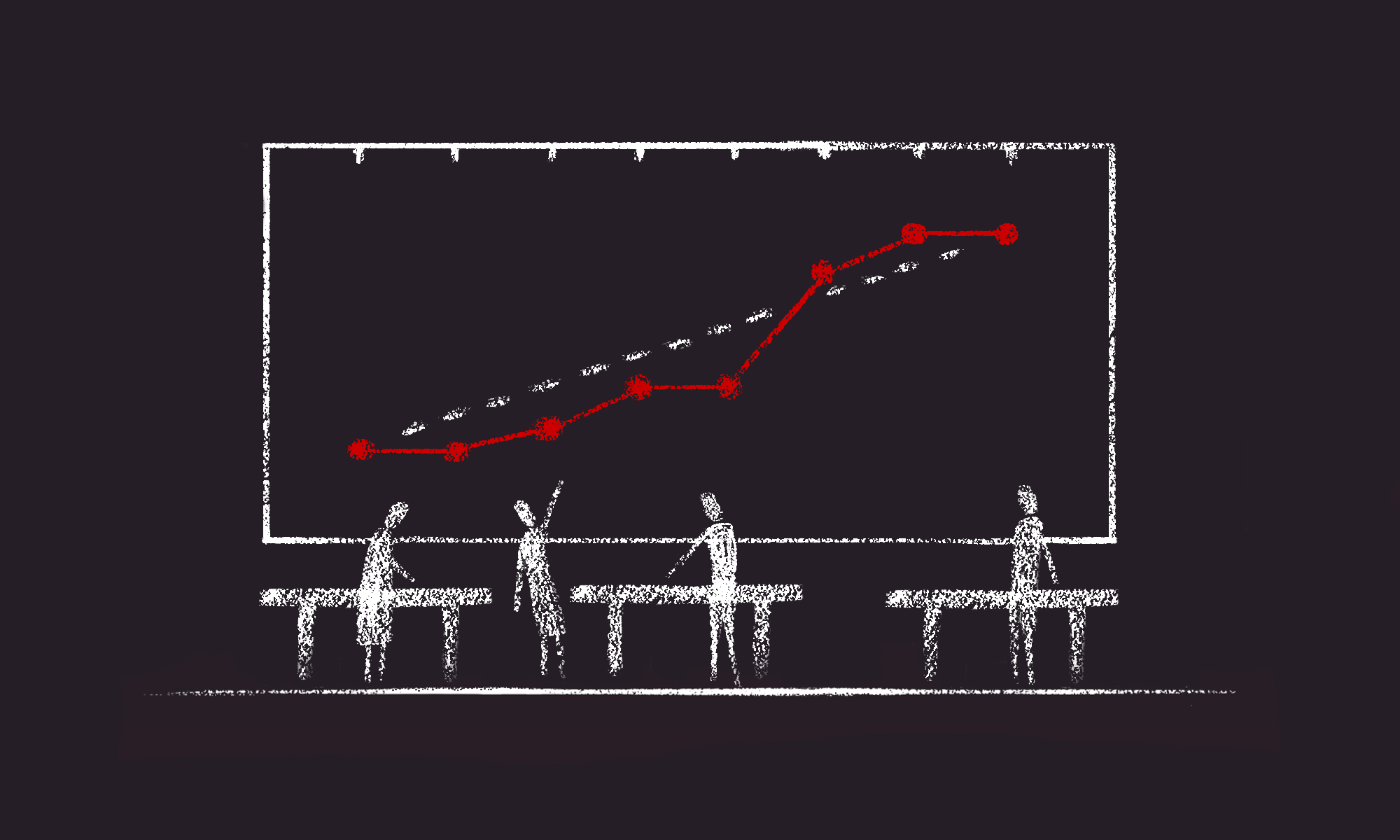
At Aten, we place a lot of weight on the importance of project management throughout the lifecycle of our digital projects. This starts at the onset of any engagement and requires that we utilize a number of effective tools and processes to steer our projects toward success. According to this post, poor communication and infrequent updates are two of the top 10 reasons projects fail. Knowing this, we adhere to consistent weekly meetings with clients to review progress over the lifecycle of a project with the support of data from the various project management tools we use.
The Weekly Check-In
For full-service website redesign projects, we lead two standing meetings each week. The first is a weekly PM check-in: a quick, data-focused meeting, usually lasting between 15 to 30 minutes. Its success relies on having accurate and consistent data, which reiterates the need for using reliable project management tools. During the meeting, we cover the following agenda:
- Total hours and corresponding budget for the project.
- Total hours spent to date and corresponding expenses.
- Remaining hours and projected costs.
- Review of the project resource plan and roadmap to ensure we're on track.
- Overview of completed tasks or tickets and any unforeseen challenges encountered.
- Identification of high-level next steps or potential blockers.
- This routine ensures that every important aspect of the project is consistently reviewed and discussed, fostering a shared understanding and alignment among the team members involved.
To keep the meeting efficient and focused, we keep the attendee list small, typically limited to the agency project manager and the client project or product manager. This approach helps streamline logistics-related discussions.
The Weekly Working Meeting
In addition to the Weekly Check-In, we also hold a second larger team working meeting with a rotating agenda that allows us to work through current deliverables, present any work, troubleshoot functionality or hurdles and accommodate any of the changing needs of the project.
The structure of these weekly working meetings is intended to be flexible knowing there are different priorities at any given point and this allows for the opportunity to delve into specific aspects that require the larger teams’ attention. As the project landscape continues to unfold and evolve, we are able to adapt our weekly working meetings accordingly to meet the needs to see the project through to completion.
While the weekly check-in is focused around being a data-focused touchpoint with key stakeholders, these working meetings cater to the intricacies of any one of our projects and foster a collaborative environment that optimizes efficiency, responsiveness, and successful project delivery.
The Tools
The effectiveness of our meetings is based on the quality of data supporting the topics we aim to discuss. To move our projects forward, we rely on a wide set of project management tools and, although we grant our clients full access to these tools, we utilize the information they provide to inform and enrich our weekly meetings.
The project management tools that we use include:
- Harvest for time tracking, reporting, and budget management. Harvest allows us to track the time we’re spending on a project throughout all of the phases as well as see, combined with Forecast, budget projection based on team allocation. We report weekly on budget status using the Harvest data as a reference.
- Forecast for resource allocation and forecasting. Referencing our project plans, we update Forecast to reflect the same hours / timing associated with our project so that we can aim to deliver the project on time and on budget. Forecast integrates with Harvest and ensures we have real-time data around how the plan we have for our projects compare to the overall budget.
- Jira to manage workflow and track actionable tasks. Every project here at Aten utilizes a Jira board to track tasks associated with site maintenance, meetings, features, enhancements, general tasks, etc. As we grow to know more about what we’re doing for each project, each task will have a correlating ticket we will use to track to completion as well as track time against estimates.
- Basecamp for capturing high-level client feedback and additional documentation during the design phase. In place of email, we utilize Basecamp for communication, to share project specific artifacts and to send deliverables or review links to clients. Basecamp ensures that everyone has line of sight into all things associated with a project.
- Slack for day-to-day communication and fostering collaboration. In the instance that neither a meeting or Basecamp note is warranted, we use Slack to answer quick-hit questions and confirm understanding of items we might be working on. This allows for us to move through hurdles immediately rather than waiting for the next discussion.
- Zoom to facilitate video conferencing, especially useful for remote clients. Aten uses Zoom as our communications platform which allows us to connect with our clients and internal teams “face-to-face.” This ensures that we are able to maintain relationships with our clients, present artifacts and, when needed, we can record meetings to reference at a later date.
- Google Sheets for internally developed tracking tools and maintaining records of each check-in. Because of the setup, we’re able to collaborate on documentation in real-time, share information or deliverables with both our internal team and our clients and stay organized in all phases of our projects.
Try It Out
We highly recommend implementing weekly meetings for any design and technology project. By dedicating the time each week to address the agenda items necessary, you can proactively identify and address any deviations from the project plan and ensure a smoother project execution.
If you're considering a project or want to discuss project management best practices, feel free to get in touch. We are passionate about helping our clients keep their projects on track and achieve successful outcomes.
